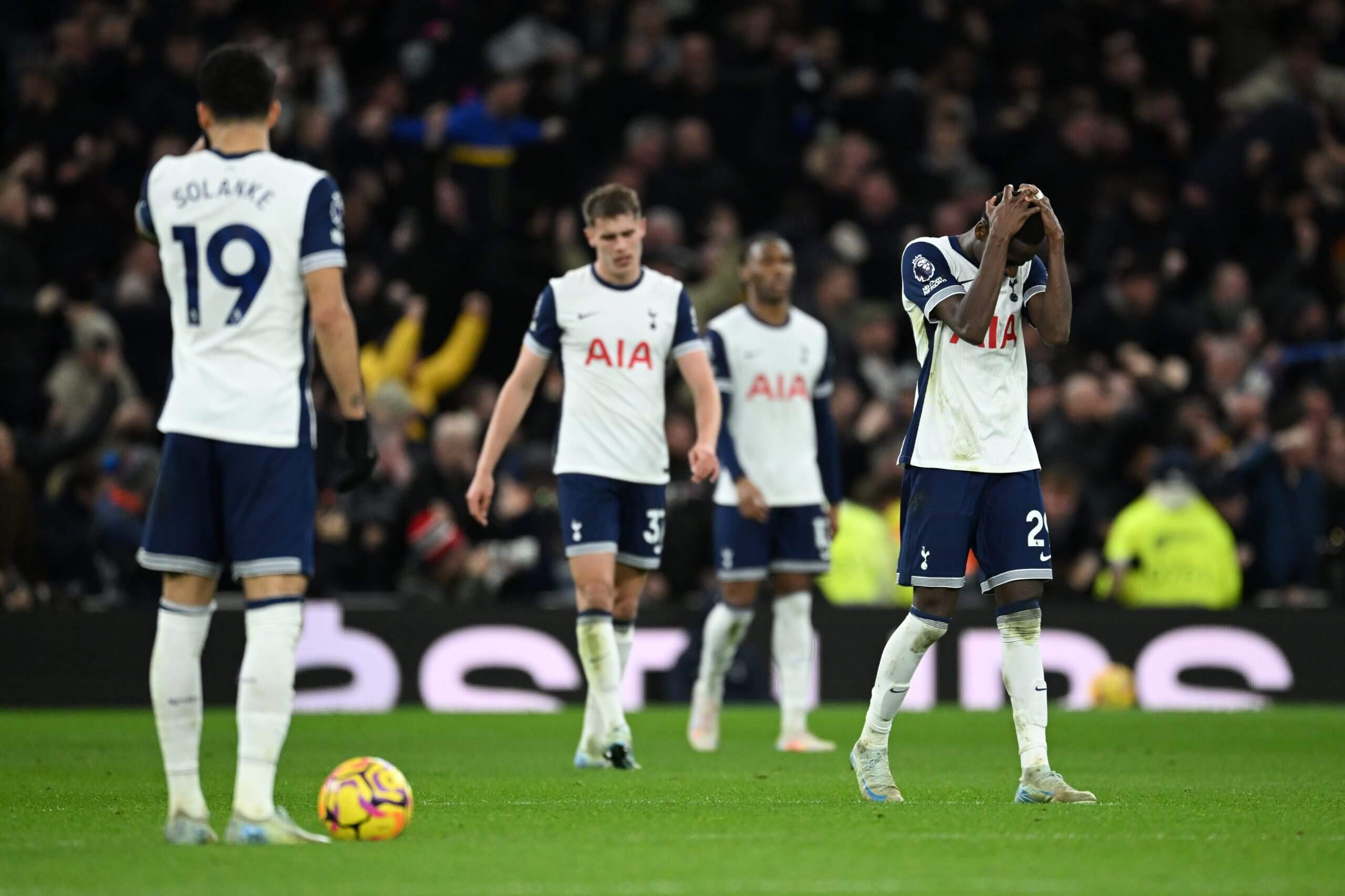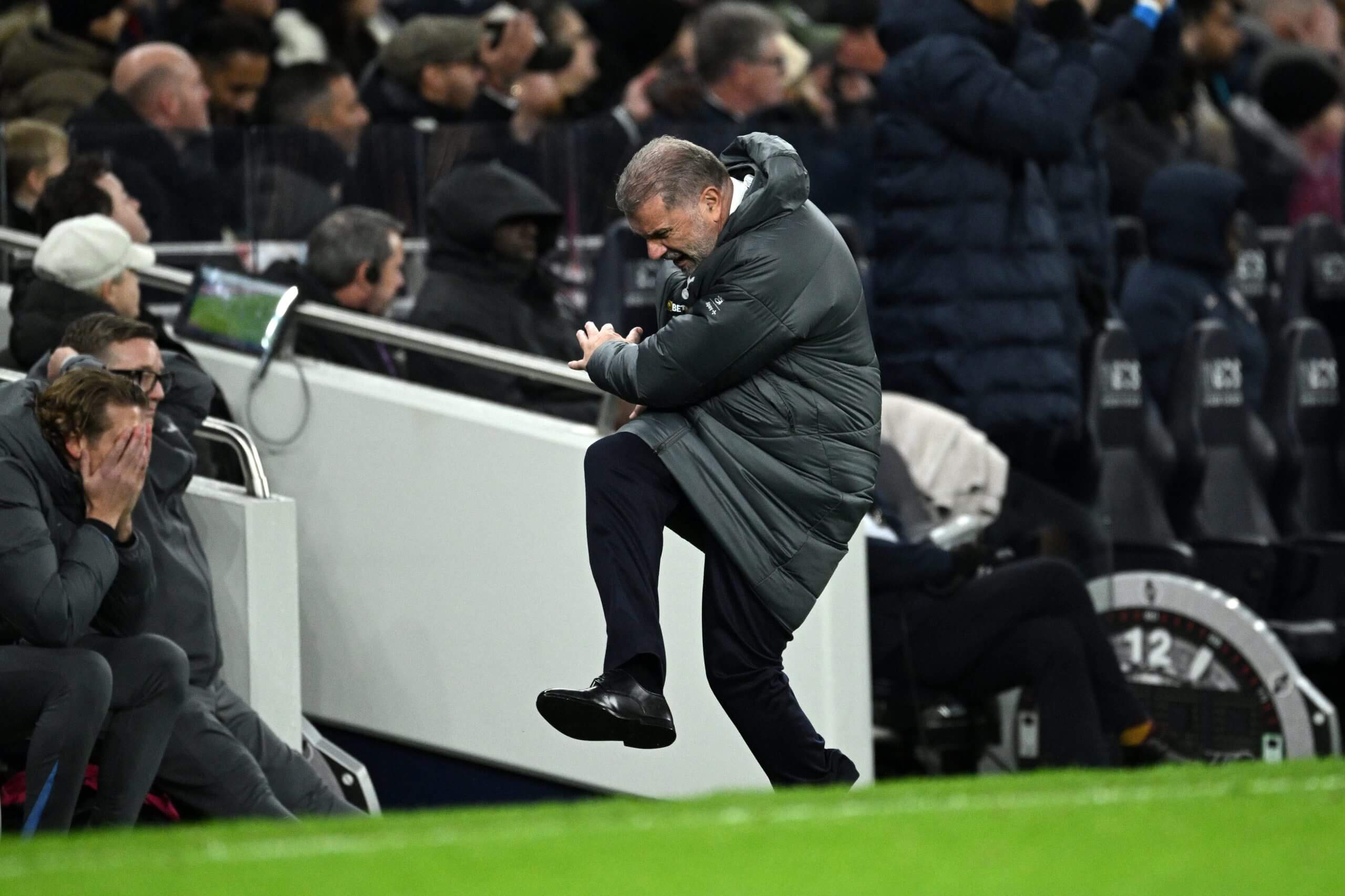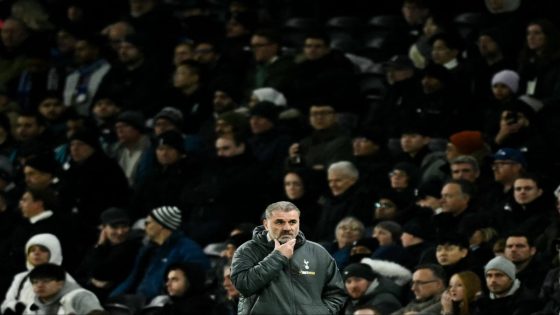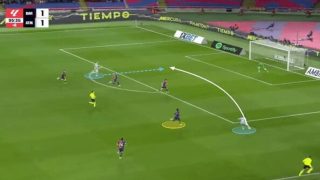There is no hiding from the numbers. Tottenham have now lost seven of their 15 Premier League games so far this season. Keep that up and it will be almost 18 league defeats by the season’s end. The last time Spurs lost more than that was 2003-04, 21 years ago, when David Pleat was caretaker and Tottenham finished 14th.
Right now, with Spurs 11th, further and further away from the Champions League places, the Ange Postecoglou project is not working. There is no other conclusion to reach. They are losing games at an unsustainable rate: 19 of their last 43 in the league. This is not the form of a serious team.
Losing at home to Chelsea will always be painful, but what will hurt the most is the eerie similarity between today and this fixture from last year, the 4-1 defeat which came to define Postecoglou’s first season. The thrilling fast start, the sense of Chelsea slowly getting control of the game before picking Spurs off, the injuries to key players. The sense that Spurs’ aggressive style had ultimately been turned against them. There were some boos of exasperation at the final whistle from fans who could reasonably ask whether Postecoglou had learned anything over the past year.
So if you wanted to argue that it was time for the Postecoglou experiment to be brought to an end, you could make a case. Postecoglou has had 53 league games now. Not a lot, but Jose Mourinho had 58 and Antonio Conte 56 before they were dismissed. Postecoglou has had three transfer windows in which Tottenham have bought some very good players for his first team. The conditions should be in place for Spurs to improve on last season’s fifth place. Instead, they are miles off where they ought to be.

Despite all of that, sacking Postecoglou right now would be hasty, knee-jerk, and would create far more problems than it would solve. Any comparison with the bitter end of the Mourinho or Conte eras is misplaced. Back in the springs of 2021 and 2023, when those two were nearing the ends of their Spurs tenures, the training ground was a miserable place. The players had grown tired of Mourinho’s provocative approach and there was a sense that standards were slipping. With Conte, they had got bored of his repetitive training, restrictive tactics and dark moods.
None of this is true with Postecoglou right now. The players enjoy their daily work, the style of play and the challenge of training. They still want this to work. You could see from how Spurs tore into Chelsea for the first 30 minutes here that they are committed to making Postecoglou’s ideas come true. “It’s not like we are hanging on in games,” as Postecoglou put it himself afterwards. “We wouldn’t play like we did today if there was a lack of belief and confidence.”
Even though Sunday’s game turned into yet another painful defeat, there were signs here of how good Tottenham can be, at least when things are aligned in their favour. They were physically ferocious at the start of the game, pressing Chelsea into more defensive mistakes than they have made all season. If Pape Matar Sarr or Dominic Solanke had succeeded in putting Spurs 3-1 up just before the break, it could have been a different game.
As bad as the results are right now, there is still a significant upside to keeping the manager. The football played in the first half here was comparable to how they ran Manchester United or Manchester City off the park away from home earlier this season, or the emphatic home wins here over City and Aston Villa. When they are good they are still very good indeed, even if that feels like a moot point in 11th place.
The problem of course is that Angeball is a house of cards. Everything needs to be perfectly in place for it to work. If one thing goes wrong — physically, tactically, technically, mentally — it all falls down. Marcelo Bielsa once said “if players weren’t human, I would never lose” and that sentiment seems to apply to Postecoglou’s teams, too, even if he would probably never say so himself. Clearly, the combination of his style of play, the demanding calendar and an availability crisis has made it very difficult for Spurs right now. But after 53 league games and three windows, it makes more sense to stick to the painful tiring work of trying to re-build that house of cards, over and over again, rather than just giving up on it.

Because if Spurs sacked Postecoglou, they would not simply get to shed the downsides of his approach but keep the good bits. They would be throwing out the possibility of building on all their hard work, of ever trying to consistently replicate the good days. Maybe they could save themselves from the Brighton, Bournemouth or Ipswich defeats. But they would struggle to play like they do at their best under a new manager.
Just take a look at the current marketplace for out-of-work managers. There are very few good ones on the market. When Spurs sacked Nuno Espirito Santo, it was because they knew Conte was ready to take the job. There is no Conte equivalent out there right now waiting for a call from Daniel Levy. There is no immediate option better than sticking with this and seeing how it goes.
Because if Spurs decided right now, less than halfway through the season, to give up on this particular experiment and start again, what message would it send? That they regretted their decision taken last year to start again under a progressive manager? That they do not have the stomach for turbulence or choppy waters? That they regret signing players for the future rather than just spending for right now? It would leave them with no identity and no strategy, other than whatever they came up with next.
Daniel Levy has sacked 13 managers in his time at Spurs. Sacking Postecoglou now, despite results like this one, would arguably be the worst.
(Top photo: Ben Stansall/AFP via Getty Images)





